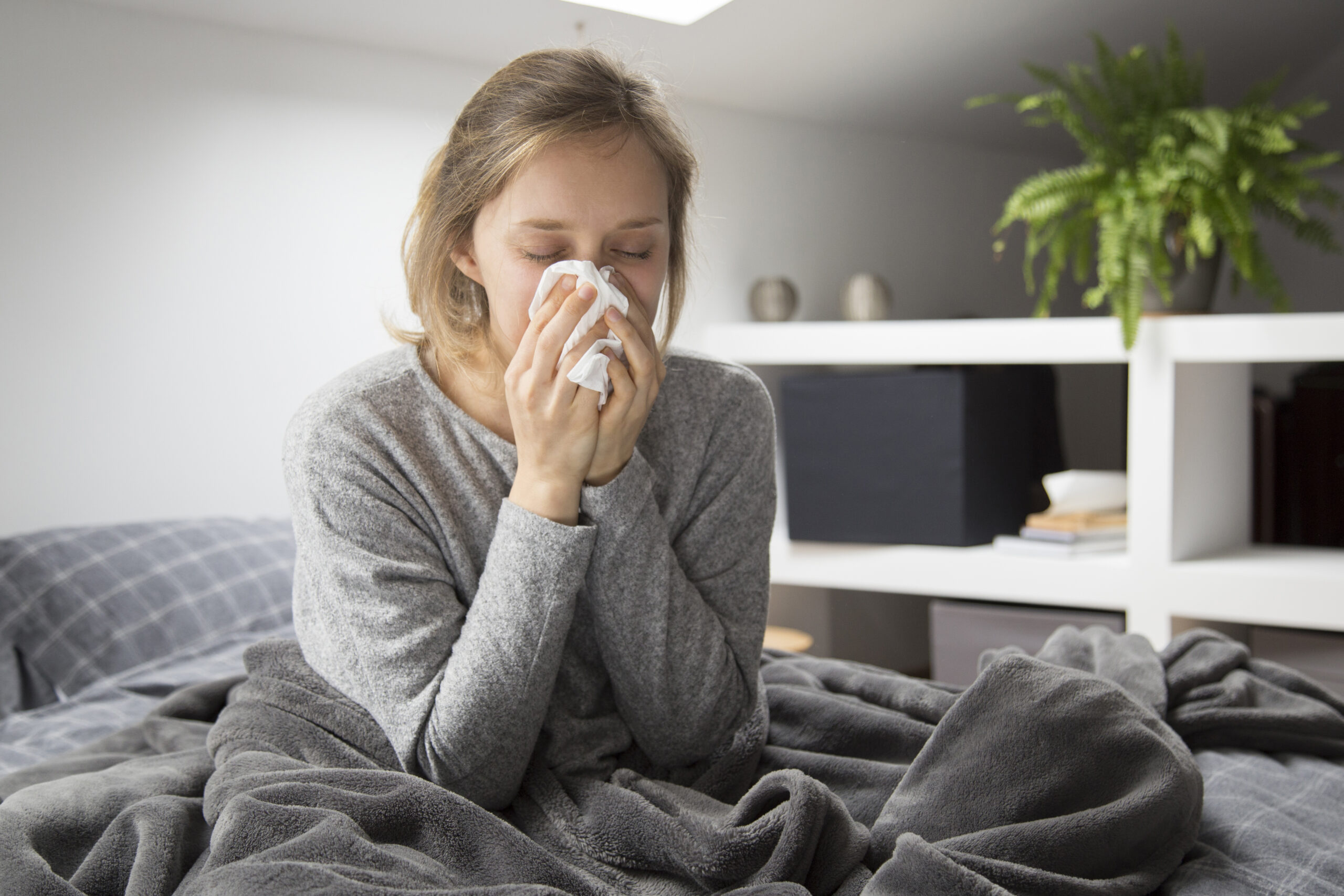INTRODUCTION
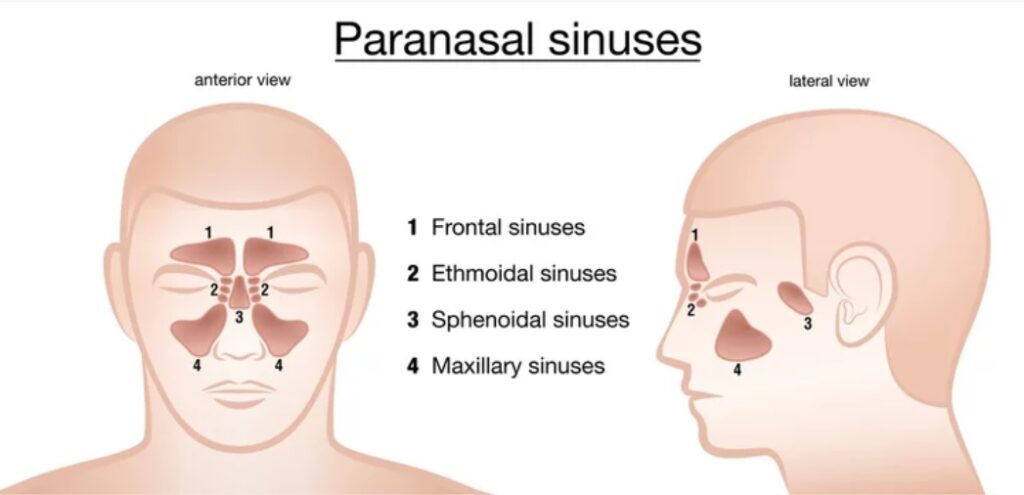
Sinuses are a set of 4 pairs of cavities that are placed symmetrically on either half of the face. These cavities open into a narrow tube which further connects them to a common nasal passage.
Their basic function is to naturally moisturize and sterilize the inside of the nose, which might have bacteria and other microorganisms trapped in it.
An infection followed by swelling of these sinus cavities due to any unfortunate reasons is called Sinusitis.
Sinusitis feels like a typical culmination of the common cold and headache. It calls for mild to severe pain around the eyes, nose, and cheek.
The other symptoms of sinusitis are headache, runny nose, lack of sense of smell, fever, fatigue, pain in the upper jaw, redness and swelling of the face, and so on.
The causes of sinusitis are known to be;
- Allergens (pollen grains, flowers, animal hair, food, fragrance, etc)
- Infection (bacterial, viral, or fungal)
- Smoking
- Consuming tobacco, cocaine, and so on.
Most of the sinusitis symptoms show up for a maximum of 10 days and are then expected to go away automatically. But in some people, they tend to get severe and recur after every 12 weeks. Thus, in such cases, it is always recommended to go for proper treatment.
Treatment procedures for sinusitis include antibiotics, painkillers, oral and topical decongestants, and other medicines. These medicines not just work on reducing the swelling of sinuses but also in curing sinusitis (especially the ones caused due to bacterial, viral, or fungal infections).
However, there are many times situations where the patient can not go to the doctor or can not report to an OPD or emergency when the sinusitis attack hits suddenly. This is when the patient tries to look for some home remedies so that he gets some relief till the time he presents himself/herself to the ENT specialist.
HOME REMEDIES FOR ACUTE SINUSITIS
Some of the home remedies that not only relieve pain but also reduce swelling and cure sinusitis to a certain extent are –
1) WATER:-
Drinking the right amount of water as per the body’s demand (2-3 liters a day) keeps us hydrated. This helps in the efficient and time-to-time release of toxins (viruses and bacteria) from the body.

2) CONSUMING FOOD THAT HAS ANTIBACTERIAL PROPERTIES:-
This helps in killing bacteria and viruses, which in turn reduces sinus inflammation.
Foods that are rich in antibacterial properties are garlic, ginger, onions, and honey.
They can be consumed in the form of ginger tea with honey, grilled garlic, onions, etc.
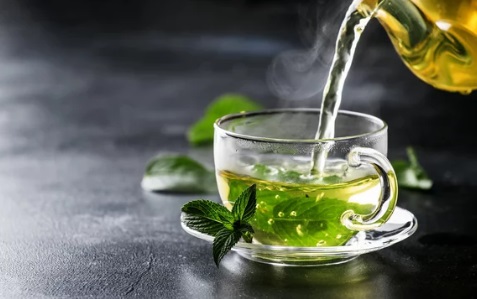
3) HYDRATING THE SINUS CAVITIES:-
Keeping the sinus cavities moist and wet throughout will help release the blocked mucus. For this, we can use the following;
(a) Humidifier:- It is a device that keeps the room moist so that on breathing that air, our sinus cavities also get hydrated. Use it during the night.
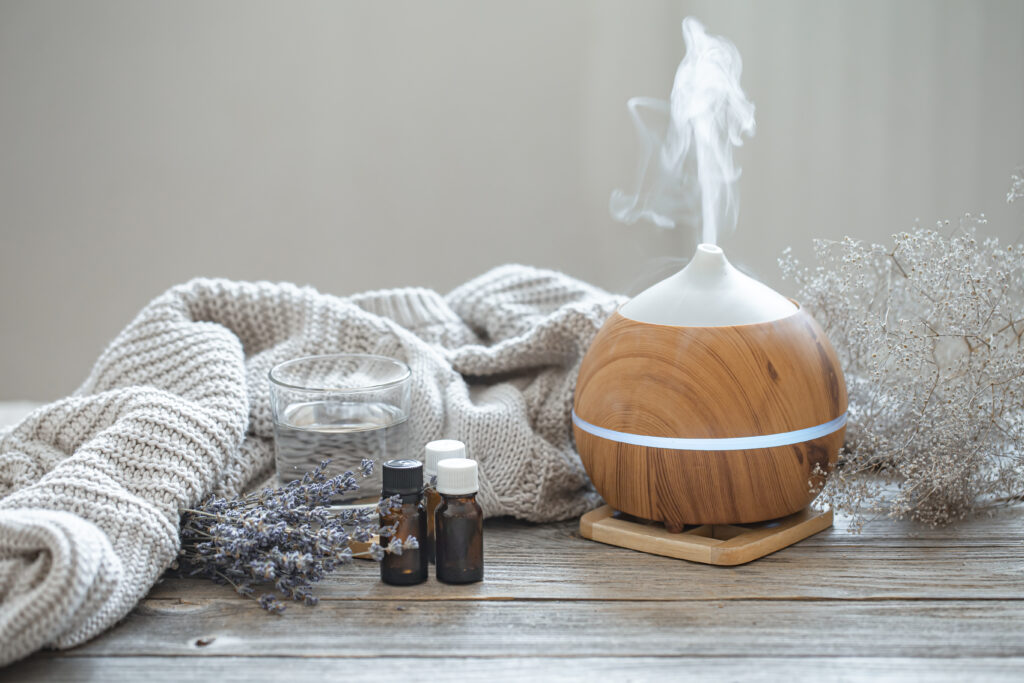
(b) Natural saline nasal sprays:- They are available in any local drugstore. The composition of these nasal sprays will dissolve the mucus easily and clears the nasal passage for easy breathing. Use it during the day, afternoon, and before going to bed.
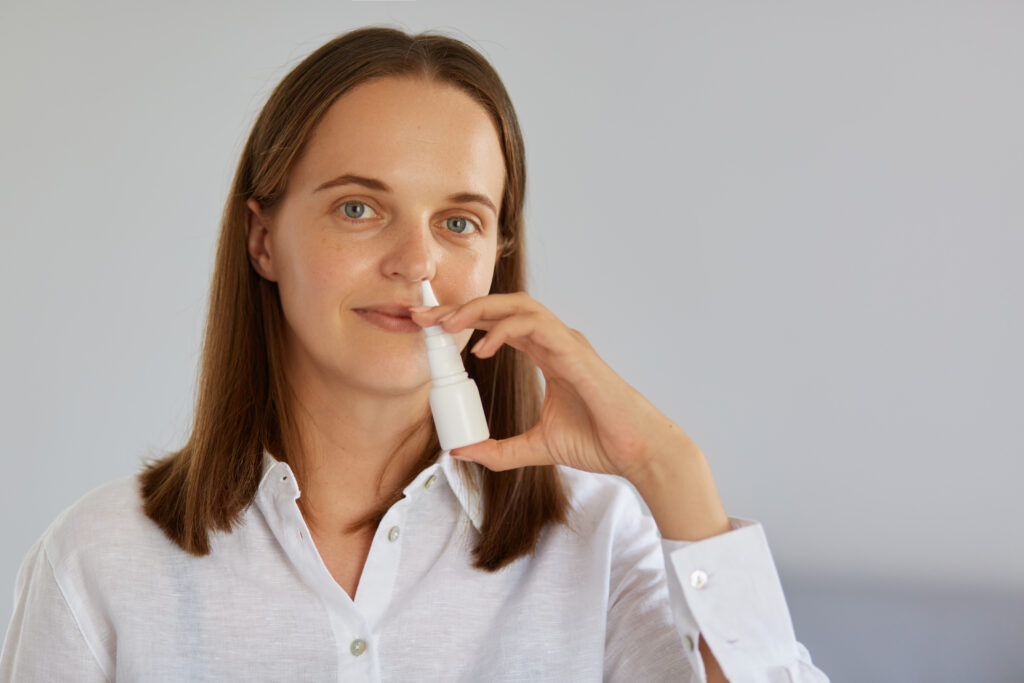
(c) Steam Inhalation:- Breathing steam using a dispenser or taking hot water showers, pressing our face against a damp towel dipped in warm water and steam bath also helps reduce sinusitis.

(d) Nebulization:- Nebulization with normal saline or hypertonic saline can also help relieve the congestion inside the nose leading to decongestion of the swollen mucosa and decreasing the inflammation of the sinuses.
Nebulization also dissolves the thick mucus easily and clears the nasal passage for easy breathing.

(e) Oils:- Mostly, eucalyptus oils are preferred in this case as they contain cineole as their main ingredient, which is best at its anti-inflammatory properties. Use good quality oil and apply them on the nose, over the mouth, and on the chest or add two drops of it in a dispenser and inhale the steam. This is one of the most effective ways to treat sinusitis.
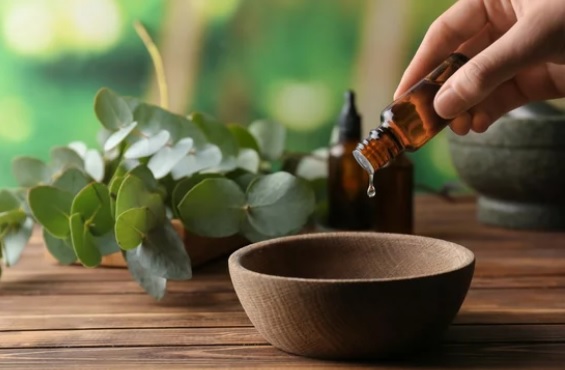
(d) Neti pot:- It is a tea pot-like utensil inside which saline water is poured for nasal irrigation.
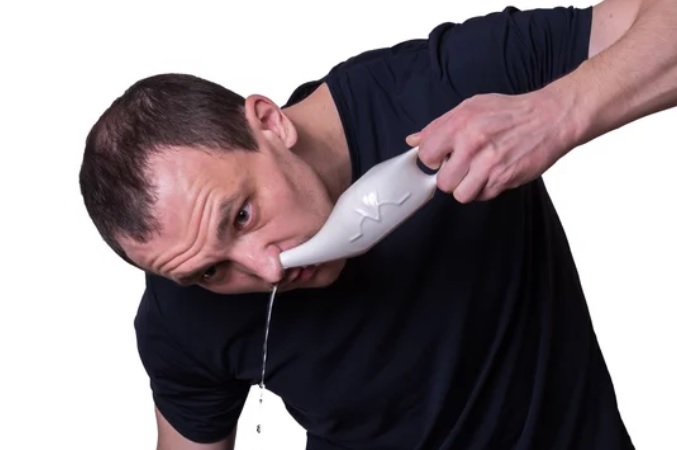
How to make saline water for the irrigation of the sinuses?
To make the saline water, take sterile or distilled water (no tap water as they might have contaminants). Make a mixture by using 3 teaspoons of iodine-free salt and 1 teaspoon of baking soda. Now take 1 teaspoon of this mixture and mix it in the sterile water. This will make a saline water solution which is further poured into the neti pot.
For nasal irrigation, tilt your head, insert the spout of the neti pot into the nasal passage and rinse it with saline water. This will flush out maximum bacteria and opens the blocked narrow pipes that connect sinus cavities to the nose. By this, the mucus drains out and clears the passage.
8) CHICKEN SOUP:- For people facing sinusitis, this is considered to be healthy as well as soothing for the throat.
The warmth in the body felt after consuming the soup is very comforting to many patients.
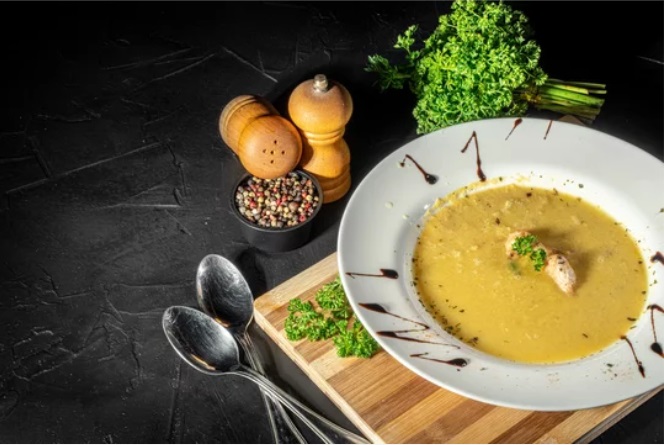
9) WARM AND COLD COMPRESS:- First, hold a warm damp cloth against your face. And then, after some time, replace it with a cold compress bag. By altering the skin temperature around the infected area, we can suppress the swelling, redness, and mucus blockage of the sinuses.
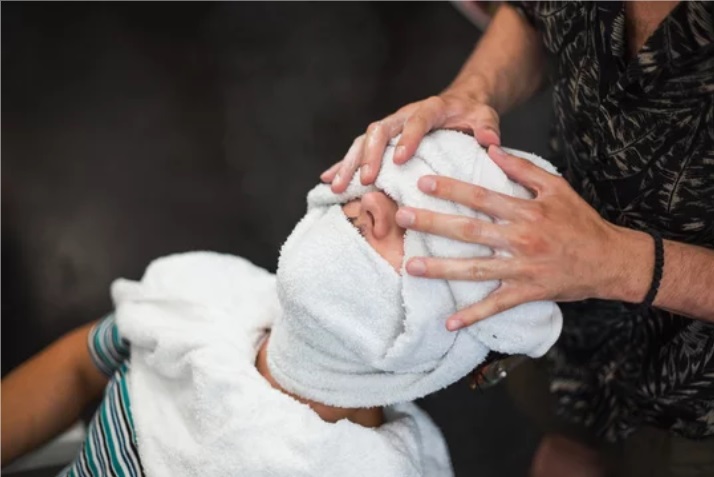
10) MANUKA HONEY:- As mentioned earlier, honey (especially manuka honey) has very good anti-bacterial, anti-viral and anti-inflammatory properties which help it to fight infections, redness, inflammation, and also clear blockage at the same time. It can be mixed with warm water or tea for consumption.
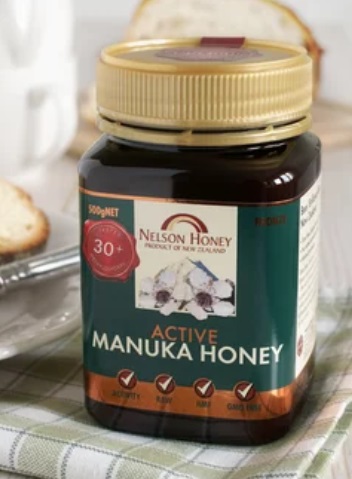
The above-mentioned procedures are some of the safe and most followed home remedies to treat sinusitis.
THANK YOU
MEDICAL ADVICE DISCLAIMER:
This blog, including information, content, references, and opinions, is for informational purposes only.
The Author does not provide any medical advice on this platform.
Viewing, accessing, or reading this blog does not establish any doctor-patient relationship.
The information provided in this blog does not replace the services and opinions of a qualified medical professional who examines you and then prescribes medicines.
And if you have any questions of medical nature, please refer to your doctor or qualified medical personnel for evaluation and management at a clinic/hospital near you.
The content provided in this blog represents the Author’s own interpretation of research articles.
